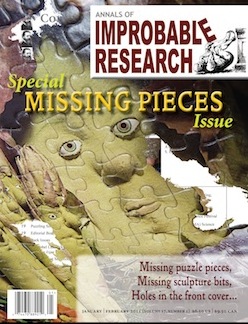A year ago tonight my play
Becoming Calvin opened in Washington, D.C. It was a thrilling evening! And I had worked so hard to make it all happen. I won't bore you with the details, but suffice it to say that I fund-raised, directed, and produced this play as a labor of love.
The play had been
commissioned in 2008 for a series of readings in 2009 to commemorate the 500th anniversary of the birth of
John Calvin. Those readings went so well that I dared to dream of a production. There is an active professional theatre scene in Washington, but I was not already affiliated with a theatre group, did not have an agent, and thought I might as well just go ahead and do it myself. You know,
find a barn and put on a show. Isn't that what show-biz (not to mention start-up) spirit is all about? Anyway, fundraising was grueling but not impossible, thanks to the 501(c)3 of the commissioning organization. I applied for a dozen grants and got a small one. I had some incredibly generous benefactors. And I was blessed with
performers willing to work for the lowest scale the union allows. And a brilliant set designer who created magic out of a hat on a shoestring budget. And one friend who designed the music as a favor, another who ran the box office so she could be part of the magic of theatre. And a husband who did double-duty as House Manager, Company Treasurer (and my greatest cheerleader).
The production went off without a hitch. Indeed, audiences were surprised, some astounded. We played to overflowing houses two nights. Attendance at the other seven performances was respectable. I made a small profit, after all was said and done, which I paid myself for the hundreds of hours I had put into the project as producer/director. My plan was to take a breather, let the dust settle, put my
communications consulting business back on the front burner, and a)market
Becoming Calvin, and b)start the next play in my planned trilogy about John Calvin and his legacy.
One year later I have ditched the idea of historical play #2, and decided that contemporary play #3 will have a largely female cast, a unit set, and a running time under two hours. I have been doing market research, you see, as I have been shopping my script around.
It is good I have had some kind of positive outcome from this exercise! Though I do remain hopeful, I have found that the mere fact that you have written a good, solid play that takes an "original, refreshing" look at one of history's most important figures is not enough. As is often the case, the art I created will die in obscurity without the right combination of connections, luck, drive, unlimited time and energy to pushpushpush for its survival. Theatres that claim to be committed to bringing new works to audiences, it turn out, want new works by established playwrights. Universities have their every-other-year "new works" slots filled for the next five years, even if they were interested in a costume drama ("no thanks, but good luck!"). And on and on....
I am not alone in this. Many playwrights I know are singing the same song. I am determined to find a way to get this play in front of an audience again. And I will. But it takes time, and I am swimming in uncharted waters.
As a country we do not support individual artists, and many worthy arts organizations go under for lack of funding. The prevailing feeling is that the arts must support themselves. But while I am supporting my artistic self
by spending time on my business, the art gets short shrift. Any efforts I make to market my play must by definition be part time and slapdash. The world of a working artist, believe me, is not like what you see in TV and the movies. We don't just wait tables/bartend till The Big Star discovers us noodling around on the bar's piano (see
Smash, season 2).
No one I know has had a moment of discovery by someone who can "put your name in lights." It is a hard slog.
So next time any artist buddies of yours complain, be supportive. Do not make them feel they aren't doing enough to get their art published/exhibited/performed. And for goodness sake do not suggest that the quality of the art is to blame. Those of us who struggle for a foothold know all too well that a lot of lesser-quality work manages to find its way to the marketplace, so obviously that's not it. Art World is a place where being excellent is sometimes not even a qualification. You have to be at the right place, at the right time when someone who has money and/or connections decides to lend you a hand. It is the way our country has prioritized pretty much everything: those at the top are staying at the top, and it is getting harder and harder to join them.
BUT -- someone will find a way to out of this conundrum. Eventually, we creative types can pretty much figure anything out!













